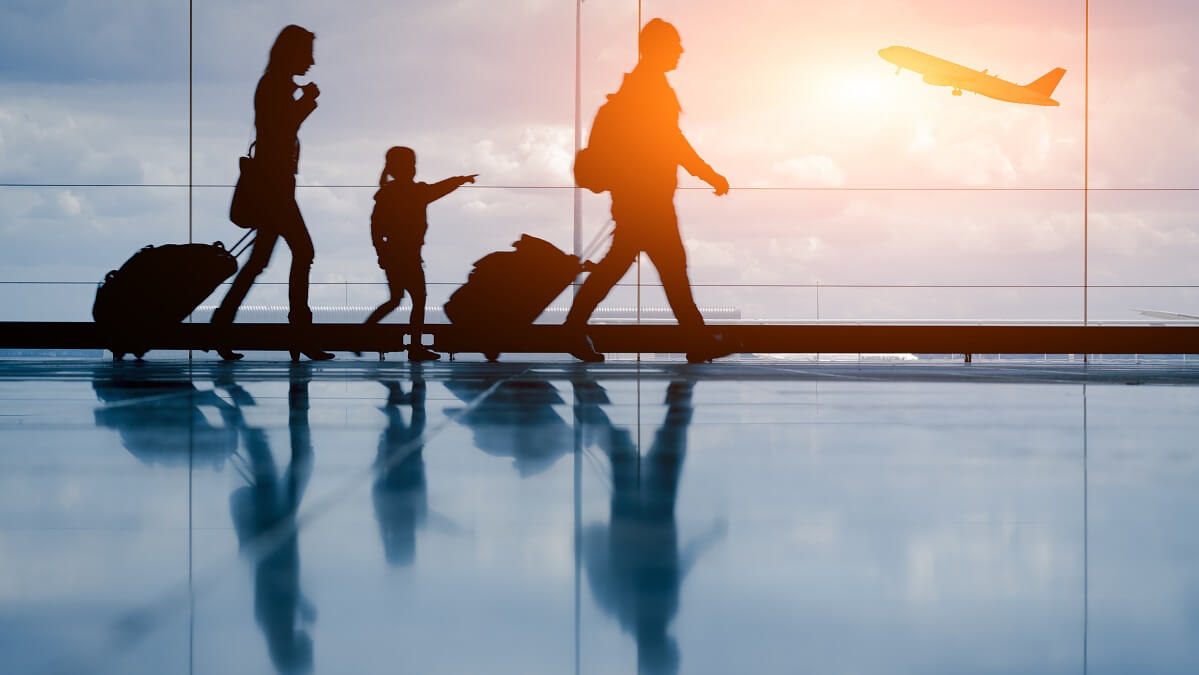It seems that a lot has changed over the history of air travel.
Planes have become more sophisticated, long-haul trips are no longer only in the realm of the truly wealthy and an overseas holiday is no longer a once-in-a-lifetime event.
But while a lot has changed, some things have hardly moved on at all.
Passports haven’t changed much in more than 100 years, despite the rapid escalation in technology in the past two decades, there have been no major breakthroughs in travel times and checking in is still a pain, and may well have become worse.
However, there may be a few things on the horizon to shake up the industry.
Here’s our guide to how air travel may be changing for the better.
Read: Where to holiday when travelling solo
Faster
There hasn’t been much change to travelling times since Concorde, and they haven’t flown commercially since 2001, but there are signs the industry may be trying to speed things up a bit.
Boom Supersonic is developing a plane that is being hailed as the world’s fastest airliner. The Overture is expected to cruise at just under Mach 1 (supersonic speed) over land and at Mach 1.7 cruising over water.
The planes are expected to be concentrated on the transatlantic routes. New York to London will take an estimated three hours and 15 minutes, down from just over seven hours.
However, the Overture seats just 65 to 80 passengers.
And while it may be a while before they come to Australia, United Airlines in the US has already put an order in for 15 once safety testing has been completed. Boom has also entered into an agreement with the US Air Force and American Airlines.
Passports
Passports in some form or other have been around for centuries, but haven’t really changed much since they were formalised in the 1920s.
They remain small booklets with your personal details and pages to stamp visas and border control verifications.
Read: What type of damage will void your passport?
These days most have an embedded chip, but really the technology hasn’t moved ahead much considering the massive strides in IT the past two decades.
Well, that looks set to change. According to Escape, there are moves to eradicate them entirely. Instead, you will have an app on your phone with digital copies of all your travel documents.
Australia has been a world leader in electronic border control methods. We came up with the Electronic Travel Authority (ETA) before the Olympics to speed up the visa application process.
The technology laid the foundations for digital visas and the future of digital passports. It’s why we can travel to New Zealand with not much more fuss than a domestic flight.
I don’t know about you, but it might suck some of the joy out of travelling. I love looking at the stamps in my passport.
Security
Security and check-in lines seem to have become worse, not better. But, once again, technology may be coming to the rescue.
In technology’s sights is the annoying task of removing all your electronics from your carry on. Let’s face it, that can mean up to four items or more these days. It’s time consuming and while you are just one person, it all adds up if there are hundreds in the line.
Well, the reason you have to take them out is the scanners use 2D technology and electronics can black anything underneath them out and they also are great ‘covers’ for bomb technology.
Read: The slices of paradise voted Australia’s top holiday towns
Airport security groups are now moving to 3D technology, which should speed things up considerably.
However, old-school photographers still using film should take note, 3D scanners will wipe unprocessed film. Check with both outgoing and destination security how to get around this. You may be able to put it in clear containers and have it inspected manually.
Boarding pass
I can no longer be trusted with physical boarding passes because I lose them so often. Thankfully, electronic ones exist these days, but even that may be about to change with facial recognition technology or biometrics being introduced in several airports.
Japan Airlines, British Airways, JetBlue and Delta Airlines have been experimenting with the technology.
In the future, airlines hope passengers enrol once, and use their facial identification across all participating carriers.
What part of travelling would you like to see streamlined? Would you trust a phone app instead of a physical passport? Why not share your opinions in the comments section below?

